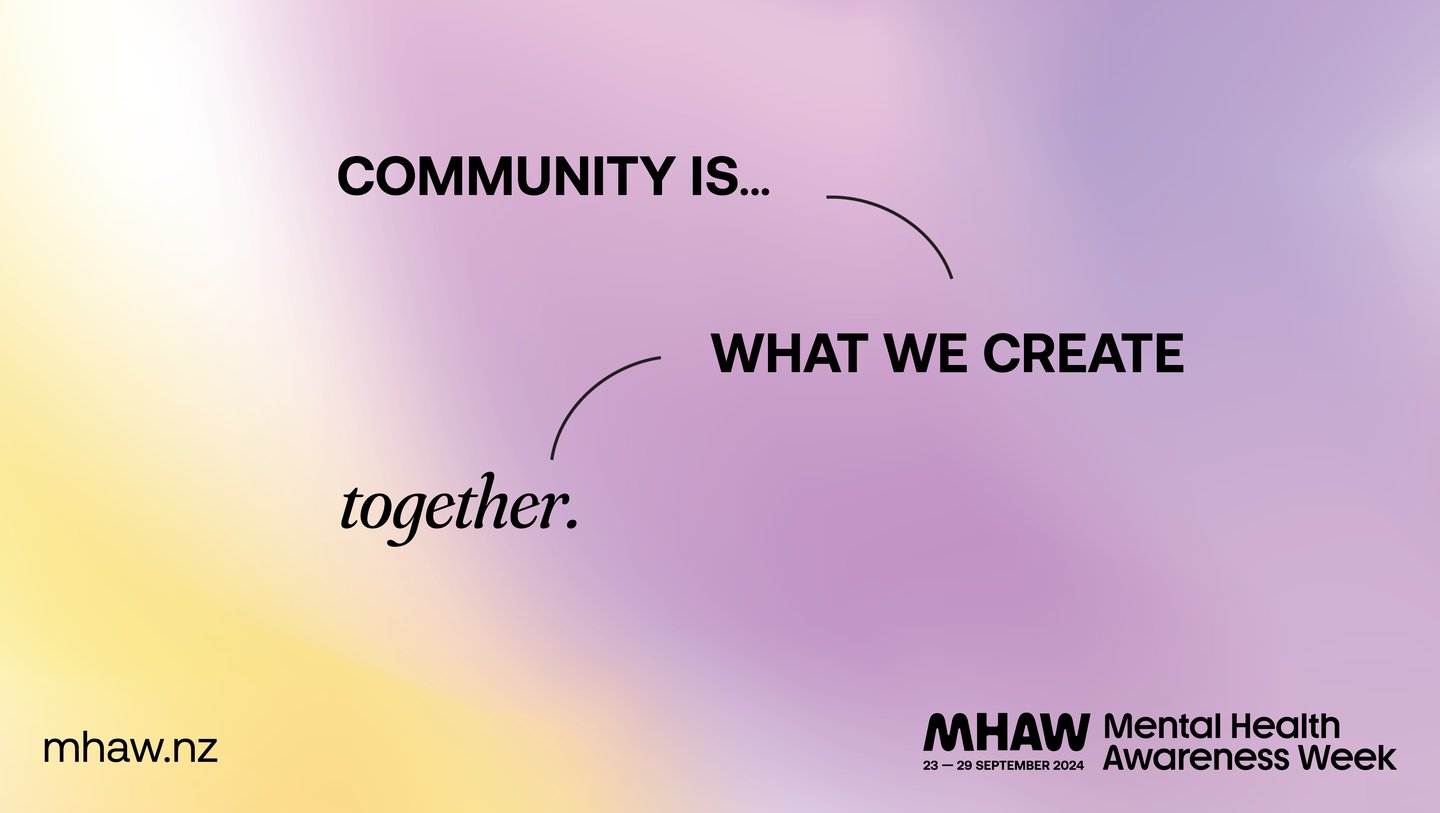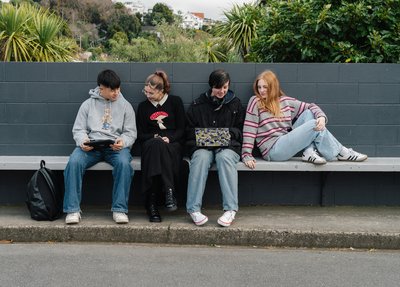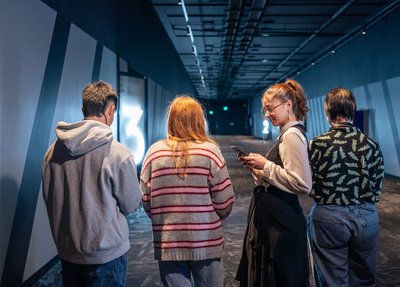
Taha Hinengaro: Keeping ourselves safe at the Classification Office
Jess on Sept. 24, 2024
A question we often get at the Classification Office is: “How do you look after yourselves?” And it’s a good one.
It’s Mental Health Awareness Week, with the theme 'Community is... what we create together.' In this blog, we’re talking about how we support each other and prioritise mental well-being in the mahi we do every day.
While working at Te Mana Whakaatu - The Classification Office might seem like a dream job to some, a lot of the time involves watching a bucket load of B-grade horrors and regularly handling challenging and distressing content. This is especially considering the classification unit, who review forensic material that can be both confronting and emotionally taxing. From child sexual abuse material to violent extremist manifestos, our day-to-day isn’t for the faint-hearted. And it’s not just forensic material. Sometimes even films, games or TV series we classify can be disturbing. It could have violence, cruelty, or sensitive topics that may stick with us – for whatever reason – long after the job is done. It might be surprising to hear that we also have our own lines and boundaries. Personally I’m sent reeling after watching anything with intense body horror. This is why having a strong support system at the Office is so important.
One of our key tools when it comes to keeping ourselves safe is the Employee Assistance Programme (EAP). Each staff member is encouraged to use the confidential counselling sessions available through EAP, which provides a safe space to talk with a professional about the emotional impact of the job, but also anything going on in our personal lives.
Each of our teams regularly check in with each other, making sure no one feels isolated in their work. Whether it’s a casual debrief about content we’re looking at or a more in-depth one-on-one, open communication helps people feel comfortable asking for help when they need it. Managers are always happy to adjust workloads if things are becoming overwhelming, and are big supporters of a healthy work-life balance. And if someone chooses to opt out of viewing certain content, that decision is always respected
Additionally, each of us have our daily habits that help manage the weight of the job. Lunchtime walks are key for some. Getting out for a breath of fresh air and a change of scenery does wonders for clearing the mind. Others swear by the mind-numbing bliss of reality TV or plot-free content—because sometimes, you just need to give your brain a well-deserved nap. We also have a wellness room where staff can decompress and take a quiet moment without interruption. In the afternoons, the world stops when we do our daily quiz. And when someone needs to step away from their desk, there’s always a communal puzzle or colouring-in books to work on. It’s also worth noting the surprising benefits of puzzles, colouring, and games like Tetris, which research shows can help reduce intrusive thoughts and prevent stressful memories from lingering in your mind.
The work we do at the Classification Office is tough, but it’s meaningful. And to keep doing it effectively, we know we need to prioritise our own mental health. By offering professional support through the EAP, creating a culture of peer care, and integrating healthy routines into our daily work life, we’ve built a supportive environment that helps us cope with any challenges we face.
In our roles, we have a responsibility to protect the public from harm – but at the end of the day, we can only do that if we’re looking after ourselves.
Further reading
Subscribe to our blog
Stay up to date with the Classification Office blog.


